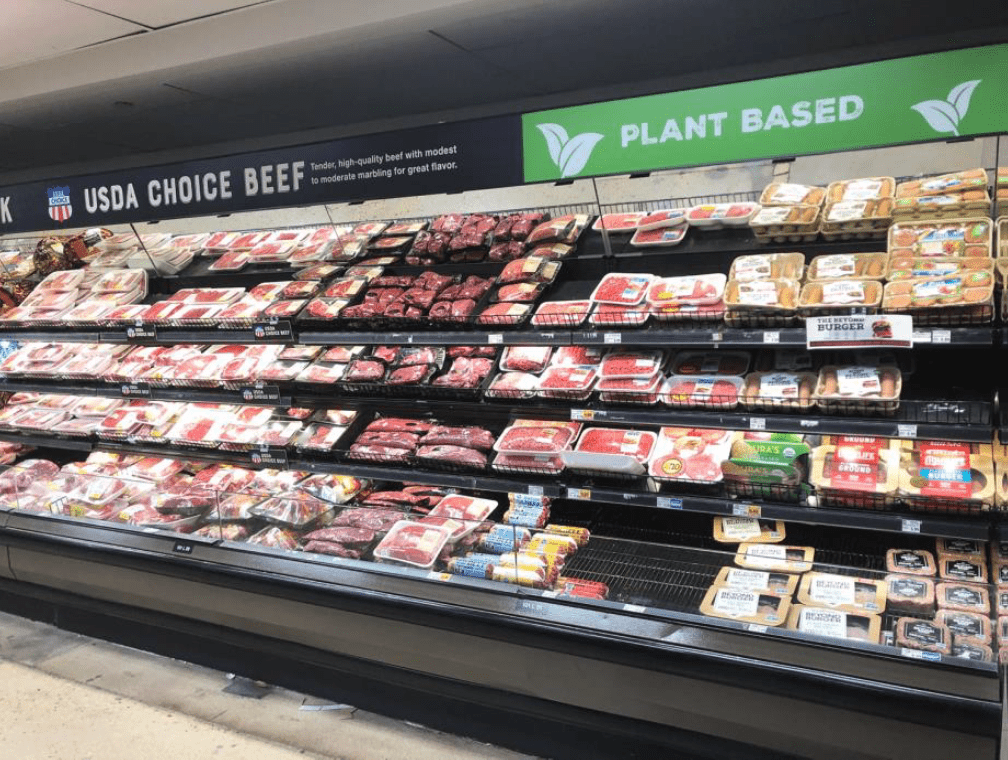From vegconomist.com
Philipp Wolf is the founder and operator of swyytr.com, a digital food hub that brings together relevant topics from the food sector under one roof and reports on news and trends in the form of several newsletters every week, in addition to his full-time job in private label marketing at REWE.
In this piece, Wolf poses that many plant-based brands are failing to stand out due to interchangeable, green-centric branding and lack of originality. Despite product improvements in taste and texture, companies rely heavily on green packaging and predictable names, says Wolf, suggesting that while this may appeal to early adopters, it lacks the distinctiveness needed to attract the mainstream consumer, who prioritizes price, taste, and memorable marketing.
Trapped in total interchangeability: how plant-based brands are losing the mainstream due to a lack of courage
By Philipp Wolf
Plant-based substitutes have made remarkable progress in recent years. What was once often reminiscent of pureed cereals now increasingly resembles what it is supposed to replace: meat. The flavour, consistency and appearance of these products have become more appealing to a broader, but also more critical target group. However, while product quality is steadily improving, the branding of many companies looks like a relic from the days of hunters and gatherers, although the latter are obviously more likely to feel addressed.

Byron Sharp, professor at the University of South Australia and director of the Ehrenberg-Bass Institute for Marketing Science, which works with global corporations such as Procter & Gamble, Unilever, and Mondelez, has defined seven essential rules for successful marketing in his book ‘How Brands Grow’. These include the irrefutable principles ‘Get noticed’, ‘Build memory structures’, and ‘Create distinctive brand values’.
However, a look at the brand landscape of many vegetarian and vegan meat alternatives reveals that many companies, including some big names, seem to ignore these basic rules.
Relevant supermarket shelves paint a picture entirely in green. Regardless of whether the products come from Beyond Meat, Garden Gourmet (Nestlé,) or Rügenwalder Mühle. It seems as if it has been agreed that plant-based products can only be packaged in green. But it doesn’t end with the packaging. For brands such as Greenforce, Green Mountain (Hilcona), Green Legend (PHW Group/WIESENHOF,), and Billie Green, ‘plant-based packaging’ was not enough. They also had to integrate their green orientation into their brand names, as if it were the decisive sales criterion.
Anyone who has not yet had enough of this monotony will soon come across some variety, which ultimately proves to be just as monotonous: the initial ‘V’, which stands for vegetarian, vegan or simply veggie, depending on the brand. From Vantastic, Vegafit, Veggie Life, and Vegini to Vivera… there is no shortage of examples.

Recognise uniqueness
As understandable as it is that marketers want to associate their products with attributes such as health and sustainability, it is problematic that this ignores one of the most important characteristics of a brand: uniqueness.
These attributes may have won over the early adopters of the plant-based category, but other approaches are needed to reach the mainstream. The average consumer is more influenced by price, taste, and advertising than by supposed altruistic added value.
The US company Impossible Foods has also recognised this and gave its brand image a new look at the end of last year with an eye-catching ‘bloody’ red. With this strategy, the US market leader is aiming to appeal to meat eaters and flexitarians rather than just vegans and vegetarians.
A few stand-outs
There are also examples of slightly different (and therefore more eye-catching) brands in this country. The Raging Pig Company, a Hamburg-based food tech start-up that specialises in authentic pork alternatives such as plant-based bacon and bratwurst, stands out with its eye-catching and modern brand communication, which is more reminiscent of a hip butcher start-up than plant-based alternatives. True to the motto: meat is meat, whether veggie or not.
But not everyone has to take such extreme measures. Brands such as Planted and ‘Like’ show that a middle ground can also help you stand out from the crowd. Ultimately, it doesn’t help if everyone paints themselves red.
It is crucial that companies and brand managers now look at the attributes they need to charge their brand with in order to take the next step towards a plant-based future. Brand uniqueness and distinctiveness are essential to be successful in a growing and increasingly competitive market.
Philipp Wolf is the founder and operator of swyytr.com
https://vegconomist.com/opinion/philipp-wolf-plant-based-brands-losing-mainstream-lack-of-courage/
No comments:
Post a Comment